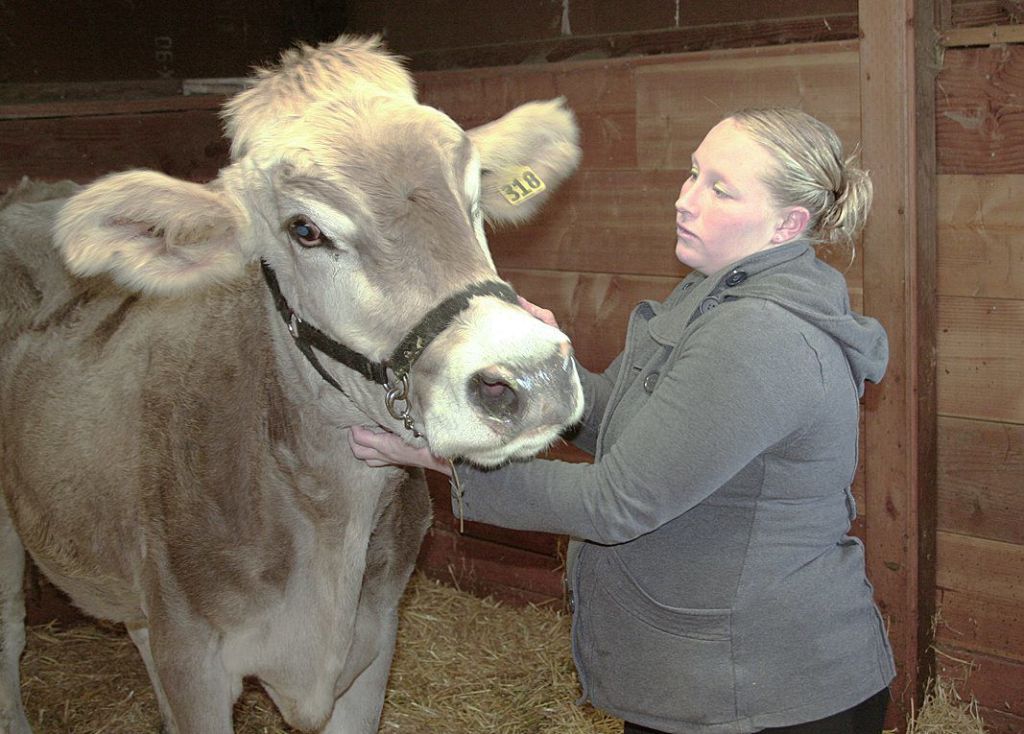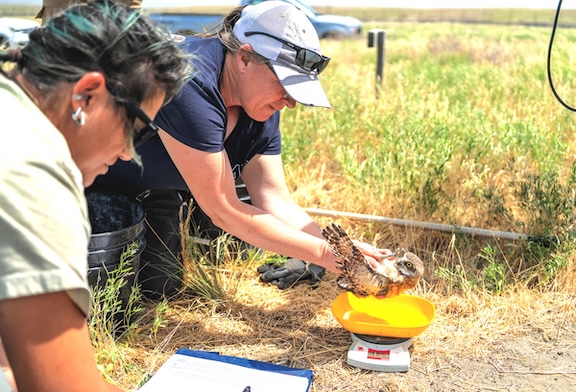Small dairies challenge broadened enforcement of Oregon CAFO regulations
Published 4:30 pm Tuesday, January 30, 2024

- Christine Anderson of McMinnville is among the plaintiffs challenging Oregon's increased enforcement of wastewater regulations on small dairies.
SALEM — Several small dairies are challenging the stricter enforcement of Oregon’s wastewater rules in federal court, armed with past rulings about pest exterminators and funeral casket dealers.
Trending
Though milking cows and goats wouldn’t seem to have much in common with killing pests or selling caskets, the dairies argue they’re similarly facing unconstitutional regulatory burdens.
“The government can’t impose arbitrary regulations on small farmers,” said Ari Bargil, their attorney. “That’s exactly what’s happening in the state of Oregon right now.”
The four small farms have filed a federal complaint accusing the state’s Department of Agriculture of violating their rights to equal protection and due process under the U.S. Constitution.
Trending
Like the pest exterminators and casket dealers in past appellate cases, they claim the government lacks a valid justification for imposing permit requirements on their operations.
“What’s really motivating this is larger dairies want smaller dairy producers to be forced to comply with ill-fitting regulations,” Bargil said.
The ODA doesn’t comment on pending litigation, a representative said. “Any comments or interpretation provided could hurt the agency in preparing its defense.”
Outreach by ODA
Last year, ODA began an outreach effort, directed primarily at raw milk producers, that urged small dairies to obtain “confined animal feeding operation” permits even if they have too few animals to require fluid milk licenses.
Oregon county approves one-mile setback for large CAFOs
While milk licenses are mostly concerned with sanitation standards, the CAFO program is meant to prevent pollution from entering waterways. The agency said it planned to begin enforcing the CAFO permit requirement on smaller dairies in 2024.
According to ODA, raw milk dairies often fall under CAFO rules because they handle manure, create wastewater by washing milking equipment and confine their animals during daily milking, even if they otherwise live outdoors.
Rubbed raw
Raw milk advocates bristled at the heightened regulatory scrutiny, which they suspected was intended to appease the conventional dairy industry rather than to legitimately protect the environment.
In justifying the new regulatory approach, ODA acknowledged wanting to “maintain a level playing field” after the dairy industry raised concerns that raw milk producers enjoy “an unfair competitive advantage” by avoiding CAFO permits.
The ODA’s decision to increase enforcement against small-scale dairies is “irrational and driven by protectionist motives,” according to the plaintiffs, Sarah King of Godspeed Hollow Farm, Christine Anderson of Cast Iron Farm, Waneva LaVelle of Pure Grace Farm and Melissa Derfler of Rainbow Valley Dairy Goats.
Pest control analogy
The situation is analogous to a legal dispute over California’s pest control licensing requirements decided by the 9th U.S. Circuit Court of Appeals in 2008, said Bargil, the plaintiffs’ attorney.
In that ruling, the 9th Circuit sided with a pest exterminator who relied on mechanical devices to trap and remove animals but was subject to the same licensing requirements as companies that use pesticides.
The 9th Circuit said California “undercut its own rational basis for the licensing scheme” by exempting pest control efforts aimed at some vertebrate pests, such as skunks, raccoons and squirrels, but still requiring licenses for others, such as mice, rats and pigeons, even if no chemicals were used.
“Indeed, the record highlights that the irrational singling out of three types of vertebrate pests from all other vertebrate animals was designed to favor economically certain constituents at the expense of others similarly situated,” the 9th Circuit said.
Similarly, Oregon’s CAFO regulations are being imposed on small dairies with a handful of livestock while other operations with more animals and a greater potential environmental harm, such as horse-boarding facilities, are not being targeted, said Bargil, the plaintiffs’ attorney.
If the ODA was serious about protecting waterways from pollution, it would treat all these animal operations equally instead of singling out small dairies for CAFO permits, he said.
“Even if we accept their justification, the way they apply this rule undermines their stated justification,” he said. “When the enforcement is so over-inclusive or under-inclusive that it just doesn’t work, that’s unconstitutional.”
Casket cases
Apart from the 9th Circuit decision, which is binding legal precedent in Oregon, the plaintiffs expect to cite other rulings pertaining to funeral director licenses imposed on casket sellers, Bargil said. Though these cases occurred in other regions and appellate circuits, they can still be instructive in the Oregon dispute.
In those rulings, from the 5th and 6th circuits, the appellate courts decided that state governments lacked justification to require funeral director licenses for selling caskets, which doesn’t involve handling bodies or other health and safety concerns.
Casket dealers were selling the same products for substantially lower prices, so the state governments were simply protecting funeral directors from economic competition, according to those rulings.
In Oregon, the government has openly admitted the CAFO enforcement effort was spurred by the concerns of the conventional dairy industry, Bargil said.
“Economic protectionism is not a legitimate government interest,” he said. “They’re referring to not having this barrier as an unfair advantage.”
The government lacks proof that dairies milking two cows or eight or nine goats have realistically created wastewater problems by washing milking equipment, Bargil said.
“There’s no evidence their operations or operations like theirs have led to any environmental quality concerns,” he said. “They simply don’t need elaborate and expensive infrastructure to process the waste on their operations. The government cannot create red tape where the hazards are imaginary.”
Groups sue EPA over CAFO regulations









